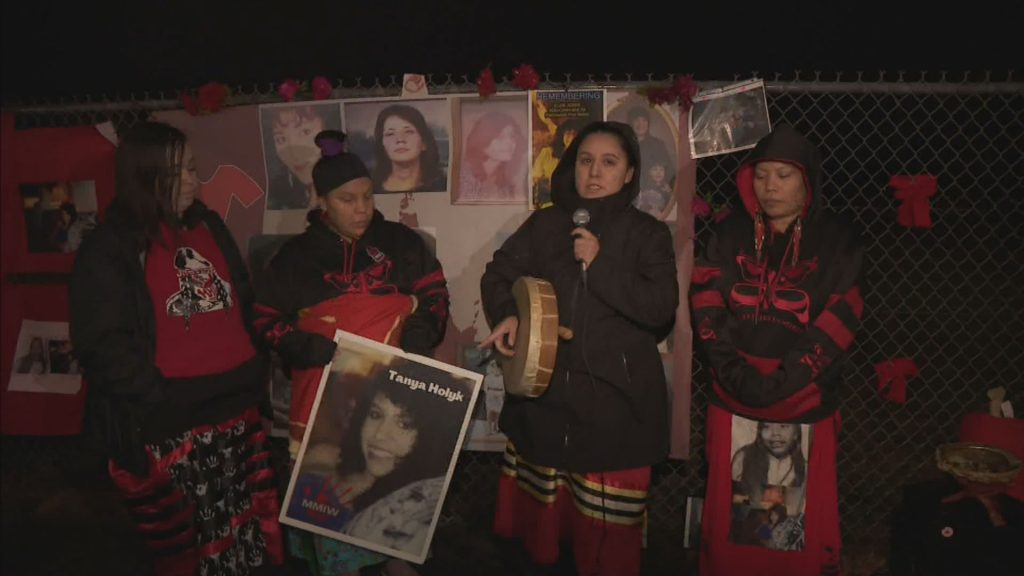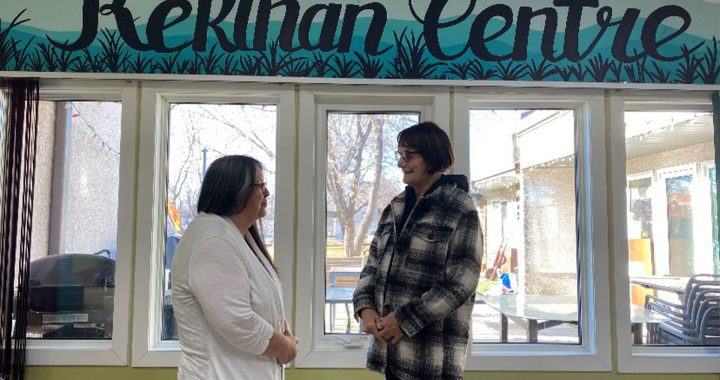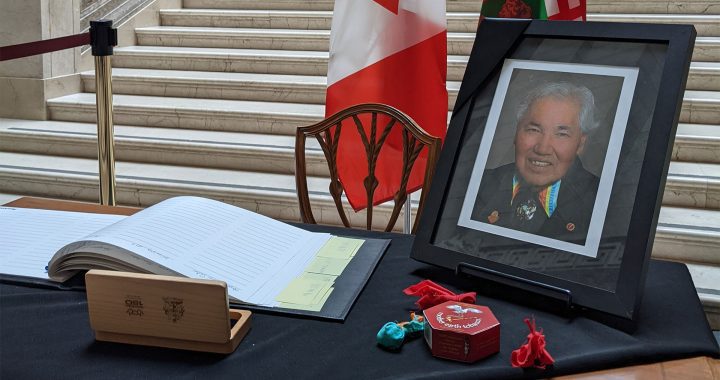
It all began in 2002 when police went to the farm belonging to the Pickton family in Port Coquitlam, B.C. with a firearms warrant. The officers stumbled up discarded women’s clothing and personal items strewn about the property.
That discovery launched the largest police investigation in Canadian history. In 2007, Robert Pickton was charged with 26 murders and convicted of six counts of second-degree murder. He was sentenced to life in prison.
As of Feb. 21, he was eligible for parole.
“This is what we have to live with,” said Lorelei Williams, whose cousin, Tanya Holyk, was one of Pickton’s victims. “And the fact that he can apply just shows how much they don’t care for us. Our racist country, our racist Canada, does not value us.”
Williams, speaking at a vigil Wednesday evening with families at the Pickton farm, said she’s heard from lawyers and others that Pickton would never get day parole and be transferred to live in a transitional house, but that does not comfort her.
“There’s that fear there,” she said. “What if?
“It’s because I don’t trust the system. There’s always going to be that fear.”
Williams said she’s returned to the site of the former pig farm a few times and Wednesday’s event was emotional.
“That was the last place that Tanya was and that’s where she was murdered. So, it just hit my heart very hard,” she said.
Williams said Pickton’s eligibility for parole made her feel disgusted with Canada’s laws and justice system.
She said no one in the system told victims’ families Pickton’s eligibility date was approaching, and she only learned about it through speaking with a lawyer she knows.
“They never learned how to work with us. They’re just so insensitive,” she said of the system.
“I’m not shocked that they didn’t tell us because they like to not tell us things.”
The Parole Board of Canada confirmed Pickton can apply for day parole.
Leyla Mavaddat, a spokeswoman for the board’s Quebec regional office, said it can take months before a hearing is scheduled. She couldn’t confirm whether Pickton filed an application.
Second-degree murder convictions under Canada’s Criminal Code mean Pickton was automatically sentenced to life in prison. B.C. Supreme Court Justice James Williams sentenced him to the maximum period of parole ineligibility — 25 years.
“In terms of the decisions that I have to make today, determining that period of ineligibility is clearly the focus,” the judge said at the time.
“The women who were murdered, each of them, were members of our community.”
Although it’s been 22 years since Pickton was arrested, the mother of victim Stephanie Lane says it’s like a nightmare she can’t wake up from.
“It’s important to honour the women who lost their lives here – and for my daughter,” said Michelle Pineeault. “With Pickton being eligible for day parole or being eligible to apply for day parole, Pickton should not walk on this earth.
“He doesn’t deserve to take one step out of where he is; he needs to stay where he is until he dies.”
Jason Gratl, who represents several family members in a civil suit, said the serial killer has a “snowball’s chance in hell” of being released on parole.
He said Pickton is confined to a “supermax” prison in Quebec, and “as far in the universe from parole as a man can be.”
Pickton was convicted of killing Sereena Abotsway, Mona Wilson, Andrea Joesbury, Brenda Ann Wolfe, Georgina Papin and Marnie Frey.
“They were women who had troubled lives and who found themselves in positions of extreme vulnerability,” Justice Williams said. “These were persons who were in the ugly grasp of substance abuse and addiction, persons who were selling their bodies to strangers in order to survive. Mr. Pickton’s conduct was murderous, and repeatedly so.”
Gratl said the civil suit filed more than a decade ago remains ongoing against Robert Pickton and his brother, David Pickton.
Opposition leader Pierre Poilievre said in a post on X, formerly known as Twitter, that Pickton “should never be released from prison.”
He said the Conservative Party believes “mass murderers should face consecutive sentences so they only come out of jail in a box.”
The Supreme Court of Canada in 2022 ruled that consecutive sentences with “stacked” parole ineligibility periods were unconstitutional.
It said consecutive terms would allow for sentences that were longer than a person’s life, a term “so absurd that it would bring the administration of justice into disrepute.”
“A sentence of imprisonment for life without a realistic possibility of parole is intrinsically incompatible with human dignity,” the Supreme Court ruled. “A punishment that can never be carried out is contrary to the fundamental values of Canadian society.”
With files by Ashley Joannou and Darryl Greer of The Canadian Press









